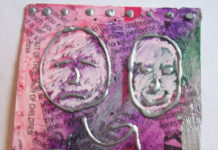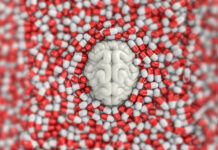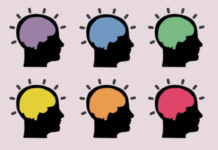Do Psychiatrists Harm their Patients out of Stupidity?
I think it is fair to say that many psychiatrists display an enormous lack of good sense and judgment. Psychiatrists are in the firm grip of a collective force field of an almost fundamentalist belief system that blinds them to the harm they unwittingly do and the human rights abuses they commit.
It’s You, It’s Not Me: Treatment Resistant Depression and the Psychiatric Breakup
"Treatment resistance" is best explained not as a medical issue but as a way for psychiatry to resolve cognitive dissonance.
Rigorous Study Finds Antidepressants Worsen Long-Term Outcomes
A new study conducted by Jeffrey Vittengl at Truman University has found that taking antidepressant medications resulted in more severe depression symptoms after nine years.
The False Memory Syndrome at 30: How Flawed Science Turned into Conventional Wisdom ...
Soon after states finally began providing adults who remembered childhood abuse with the legal standing to sue, the FMSF began waging a PR campaign to discredit their memories—in both courtrooms and in the public mind.
Hereditary Madness? The Genain Sisters’ Tragic Story
The story of the Genain quadruplets has long been cited as evidence proving something about the supposed hereditary nature of schizophrenia. But who wouldn’t fall apart after surviving a childhood like theirs? The doctors attributed their problems to menstrual difficulties or excessive masturbation — anything except abuse.
May Cause Side Effects–Radical Acceptance and Psychiatric Drug Withdrawal: An Interview with Brooke Siem
Brooke Siem discusses her experiences of being medicated with antidepressants as a teenager, her withdrawal from a cocktail of psychiatric drugs and her debut memoir, May Cause Side Effects.
Psychiatric Detentions Rise 120% in First Year of 988
As contacts to the new 988 suicide hotline number have risen, so have call tracing and police interventions.
Part II: Michelle Starts Prozac and Sees the Devil
By 2011, anyone who read the scientific literature would have known that children cannot tolerate SSRIs and should not be given them. Neither Conrad nor Michelle seemed to have been warned about the common adverse effects (such as nightmares and compulsive suicidality) of the SSRI antidepressants they were on.
“Three Identical Strangers” and the Nature-Nurture Debate
Three Identical Strangers is a riveting film describing the story of identical triplets separated at six months of age and reunited in early adulthood. Their story provides no evidence in support of the genetic side of the nature-nurture debate, but it does supply some evidence in favor of the environment.
Depression: Psychiatry’s Discredited Theories and Drugs Versus a Sane Model and Approach
Psychiatry’s depression outcomes are poor because its bio-chemical-electrical treatments are based on a depression model that science has flushed down the toilet.
What Should We Really Call Psychiatric Drugs?
There is no rational way to argue against putting psychiatric chemicals into the category of neurotoxins. All psychiatric substances alter “the structure or functions of the nervous system,” disrupt “the normal function of nerve cells” and act “specifically on nervous tissue.” It is time to clean up the misleading mess of words in psychiatry.
The Year I Lost Everything, Psychiatry Offered Nothing
After a failed suicide attempt following my son's death, New York State incarcerated me in a mental institution for 21 days. The environment was degrading, stultifying, and downright depressing.
Pills That Steal Generations of Lives
Suddenly I had an insight into why my dad decided to end his life in 1976. I learned that, like me, he was on antidepressant medication. It seems highly likely that his illness could have been entirely caused by side effects of medication, just like it was with me.
Alternatives to Suicide: Strategies for Staying Alive
For more than 7,300 days of my life, waking up the next morning required me to make a conscious choice to diligently pursue something — anything — other than my impulse to die. Maybe the best teachers of how to avoid suicide will not be the people who are afraid someone else will die, but those of us who can explain how and why we regularly choose to live.
55 Steps to Informed Consent
55 Steps is a new film based on a true story that centers around two women: Collette, a lawyer with a tendency to work long hours, and Eleanor, who has spent far too much time incarcerated in hospitals. Over the course of five years, Collette fights for Eleanor’s right to choose whether or not she takes psychiatric drugs. This film is imperfect, but its importance can’t be ignored.
Neurodiversity is Dead. Now What?
The neurodiversity movement is a public relations campaign that emphasizes the positive qualities associated with some presentations of autism—creativity, increased tolerance for repetition, enhanced empathy, and exceptional memory—while erasing or minimizing the experiences of autistics who are severely disabled.
Why I Resigned From The Mighty
The apprehensions I'd initially had about joining the team returned to my mind. I'd allowed my original cautious disposition to be overtaken by optimism when I had accepted a position of contributing editor with The Mighty, but my hopes were about to be dashed.
Prescription Drugs Are the Leading Cause of Death
Overtreatment with drugs kills many people, and the death rate is increasing. Why have we allowed this drug pandemic to continue?
Makers of Risperdal Sued for Breast Development in Boys
Thousands of boys and young men are lined up in courthouses around the country to sue J&J for gynecomastia caused by taking Risperdal as young children. The condition is irreversible except by surgical removal. Collectively, they have become known as the Risperdal Boys.
Peer-Support Groups Were Right, Guidelines Were Wrong: Dr. Mark Horowitz on Tapering Off Antidepressants
In an interview with MIA, Dr. Horowitz discusses his recent article on why tapering off antidepressants can take months or even years.
Gabapentin Withdrawal: One Year Later
Even though I was only on the medication for a little over six months, I am still traveling down the long road of psychiatric drug withdrawal. This is the hardest thing I have ever endured.
The Most Dangerous Thing You Will Ever Do
I am a psychiatrist and I have been watching my profession deteriorate for many decades. This is my most direct written statement about the dangers of stepping inside a modern psychiatrist’s office. My conclusions are the culmination of mountains of research authored by me and by an increasing number of other psychiatrists, scientists and journalists.
Can Transcranial Magnetic Stimulation (TMS) Hurt You?
What I was able to learn about the injury inflicted by TMS and the culture surrounding it is an incredible insight into the treatment itself and the nature of the medical model in its current form.
ADHD Diagnosis Based on “Illogical Rhetoric,” Analysis Claims
In a philosophically rigorous article, Spanish researcher Marino Pérez-Álvarez examines the logic of attention-deficit hyperactivity disorder (ADHD).
As a Psychologist, I’ve Seen Many Children Misdiagnosed as Autistic—It’s a Clinical Catastrophe
The ASD diagnosis glosses over the many developmental specifics that might underlie a child’s challenges related to social communication.

































